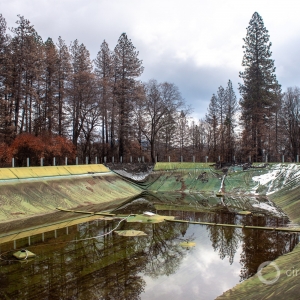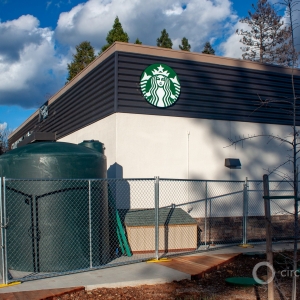The Camp Fire was the most destructive in California’s history. Recovery will take years.
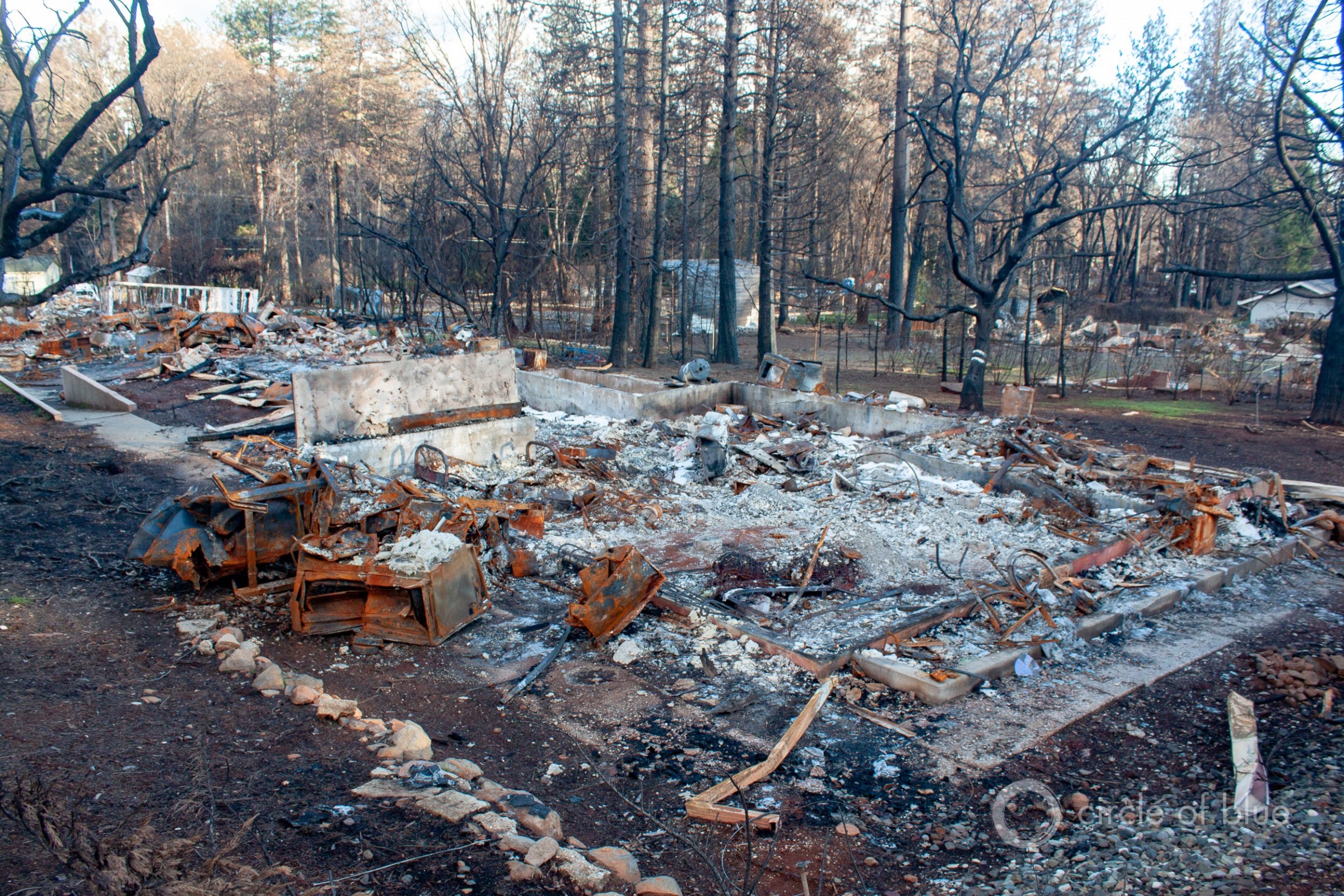
Homes in Paradise didn’t just burn. They were obliterated, leveled to their foundations. Four months after the fire, most residential properties are still in disarray. Photo © Brett Walton/Circle of Blue
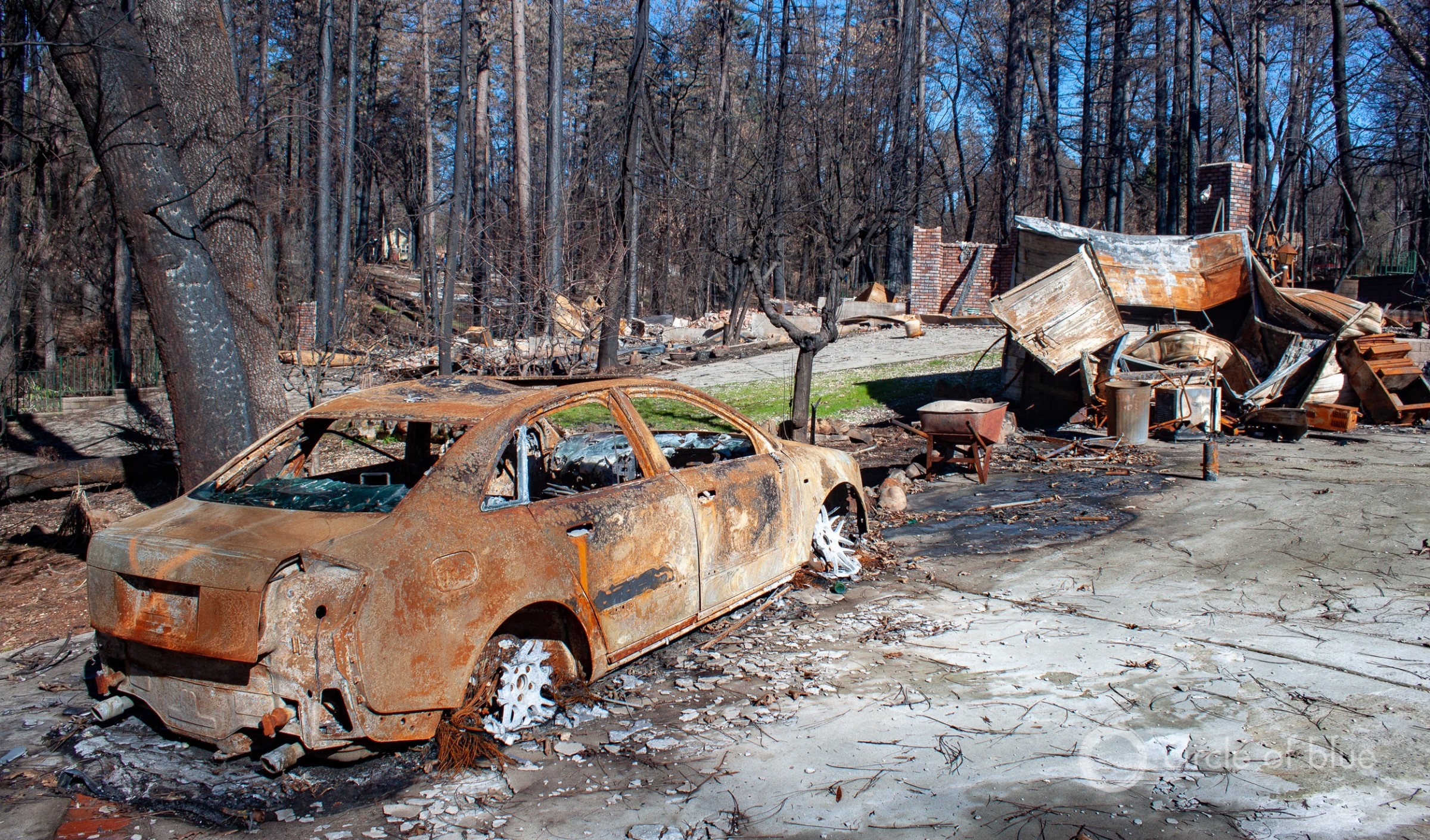
Paradise is littered with the husks of charred vehicles, which were abandoned in the rush to flee the fire. Photo © Brett Walton/Circle of Blue
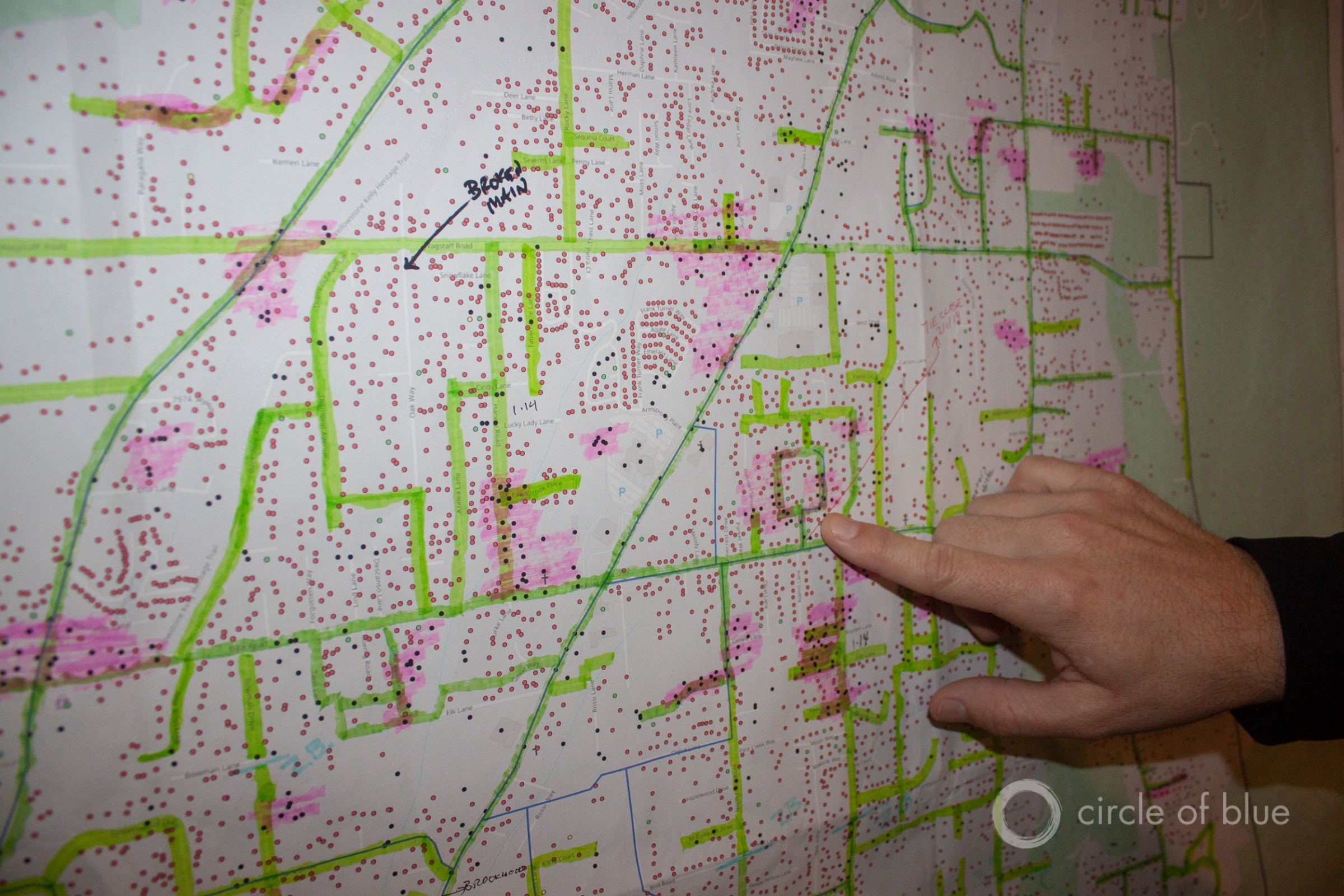
Kevin Phillips, manager of Paradise Irrigation District, the town’s water provider, points to a cluster of homes that survived the Camp Fire. Black dots represent standing structures while pink dots signify the more than 90 percent of buildings in town that burned down. Photo © Brett Walton/Circle of Blue
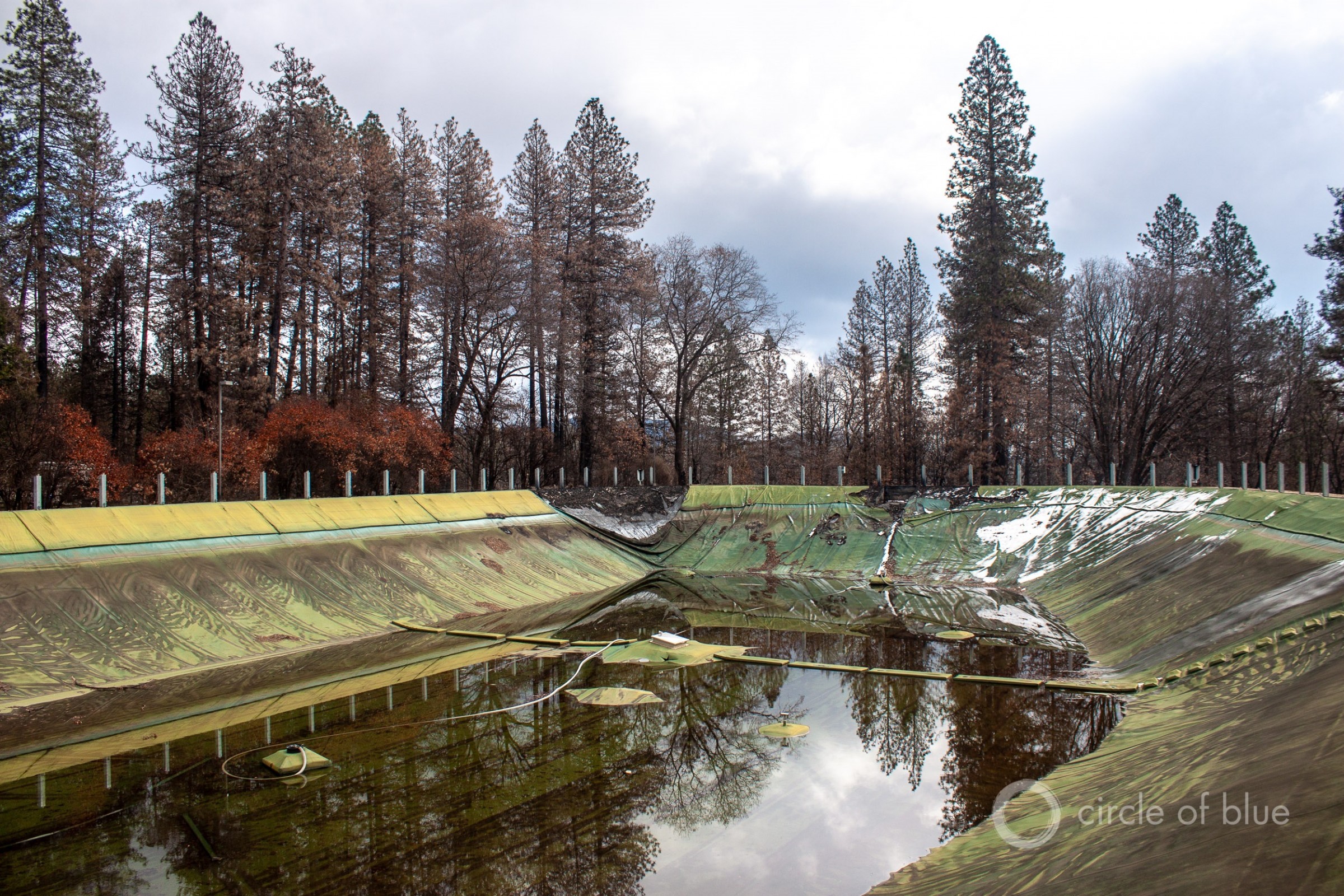
One of Paradise Irrigation District’s water storage tanks was damaged in the fire. It will have to be replaced. Photo © Brett Walton/Circle of Blue
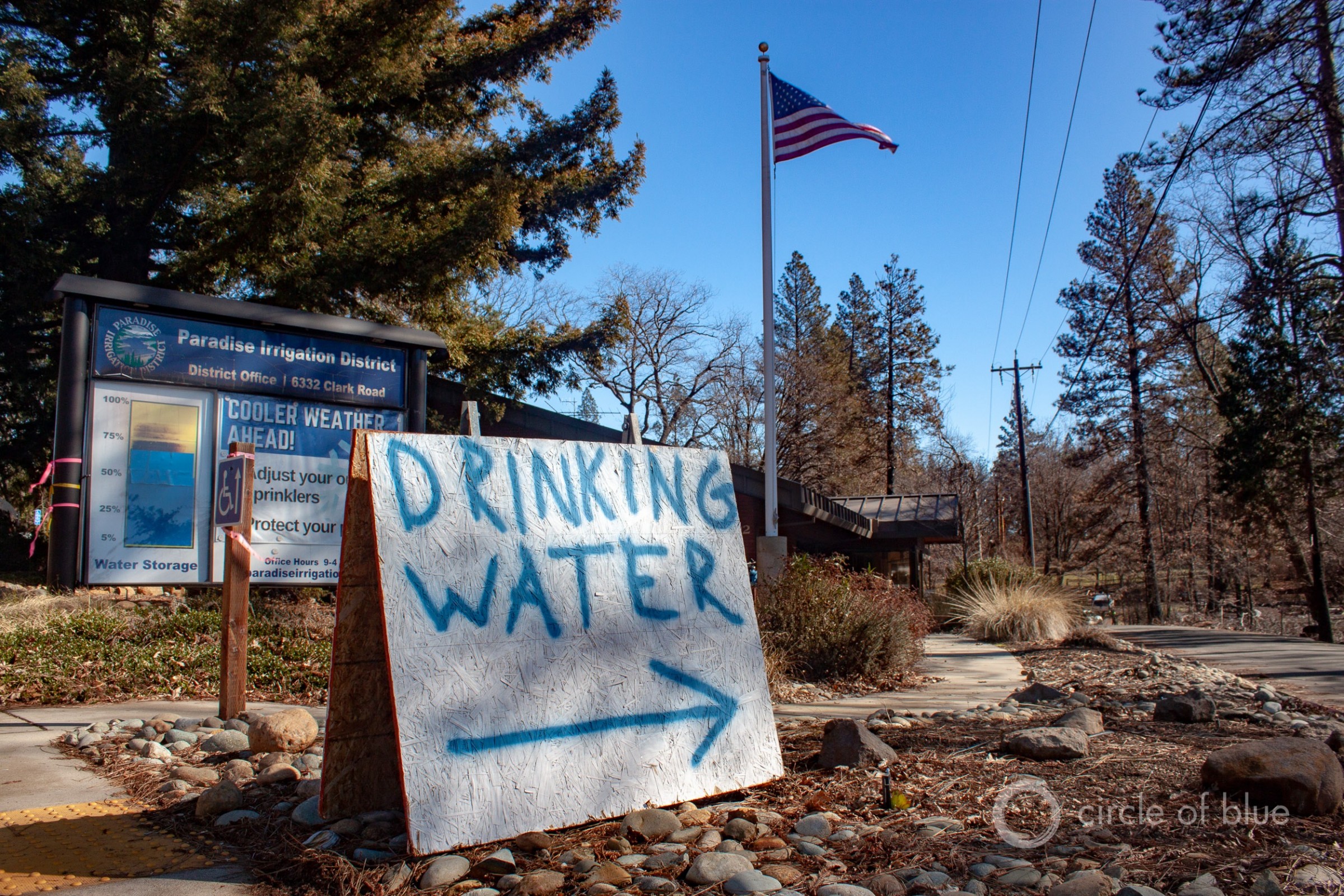
Paradise residents, who have been told not to drink the tap water, can pick up donated bottled water outside the Paradise Irrigation District offices. Photo © Brett Walton/Circle of Blue
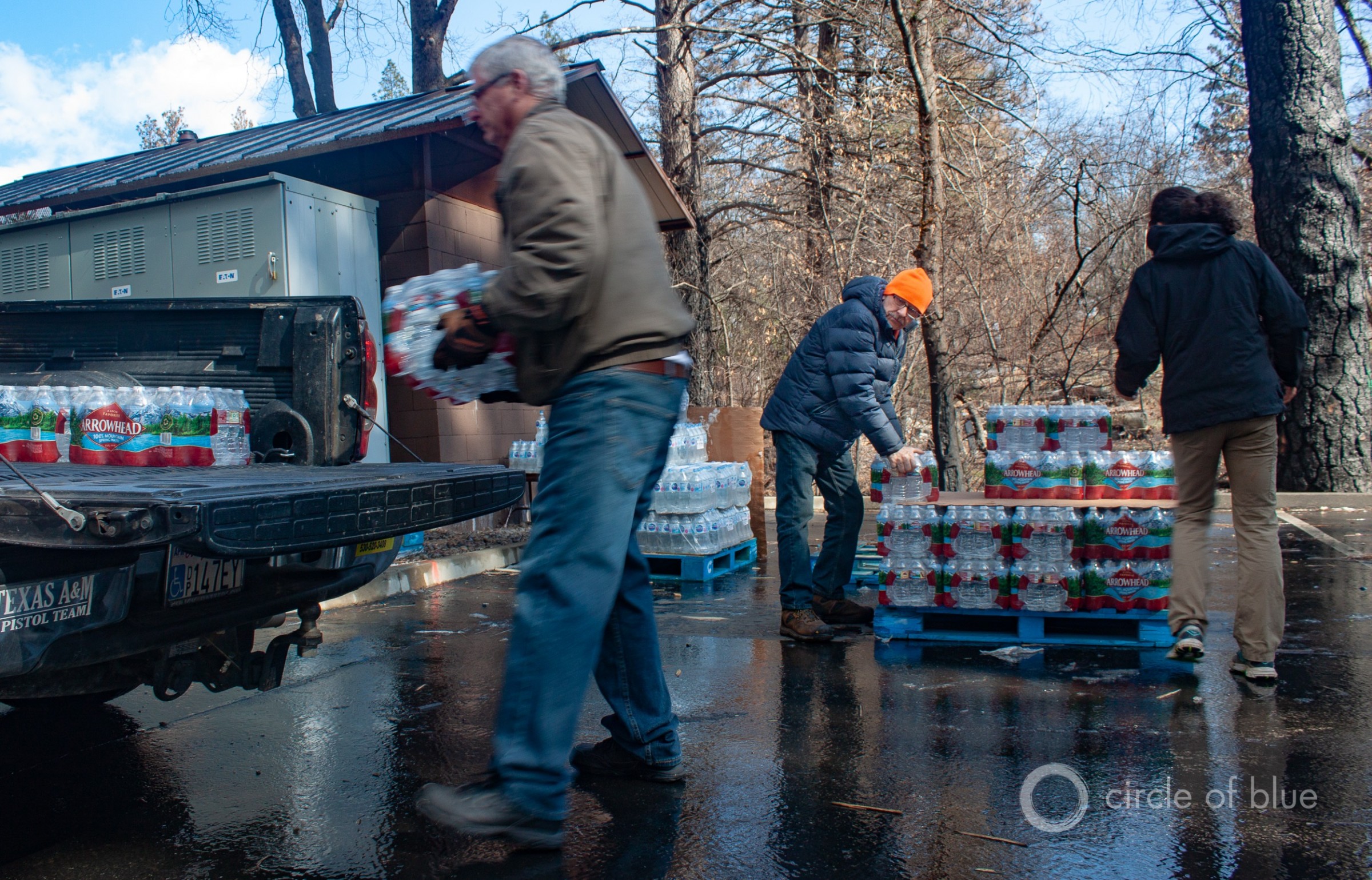
Bob Alderson, left, loads a case of bottled water into a truck bed. Paradise residents, who are not supposed to drink the tap water due to contamination after the Camp Fire, are allowed one case per day per household. The water is donated and handed out by volunteers. Photo © Brett Walton/Circle of Blue
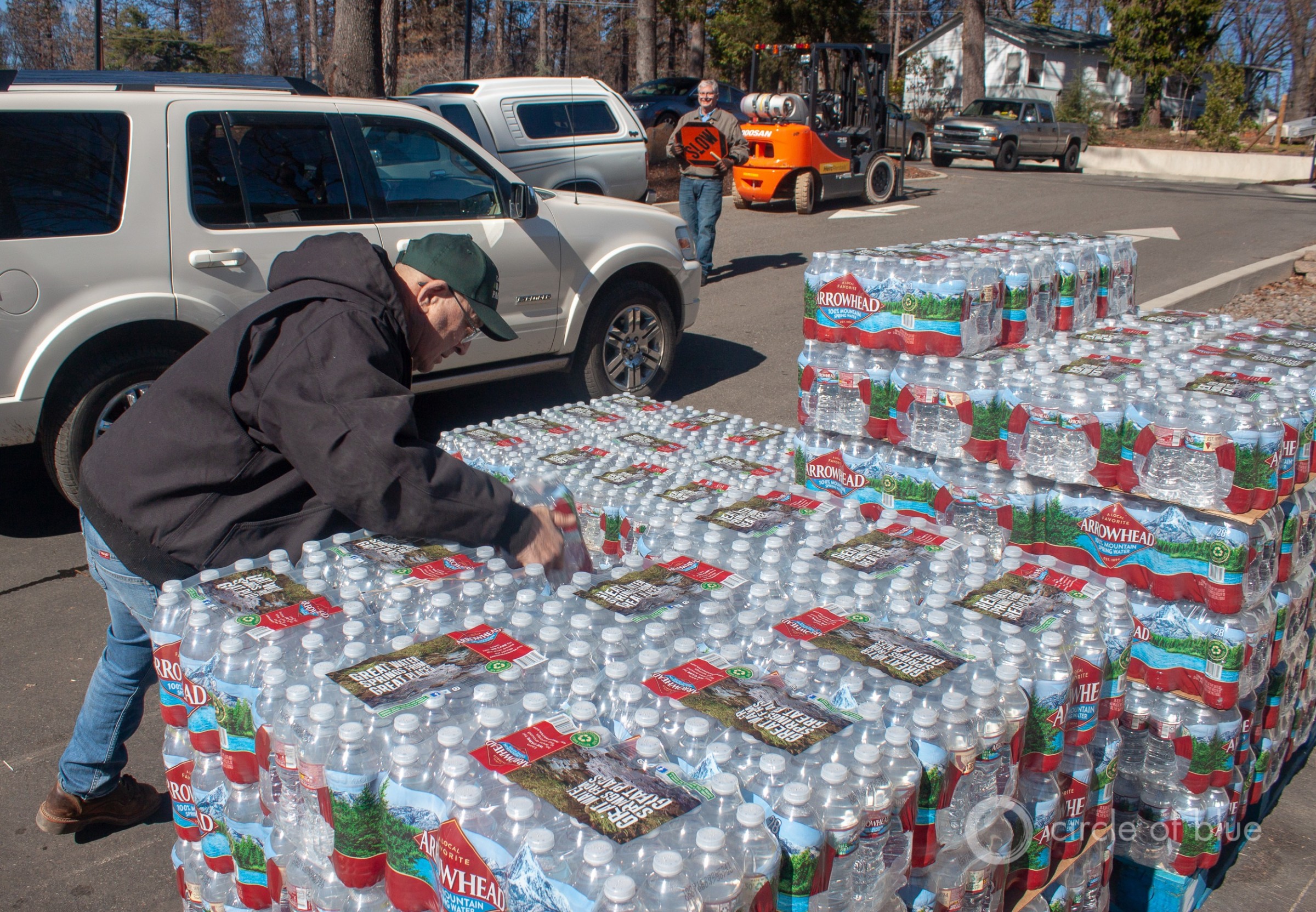
Volunteers distribute thousands of bottles of water to Paradise residents each day. Photo © Brett Walton/Circle of Blue
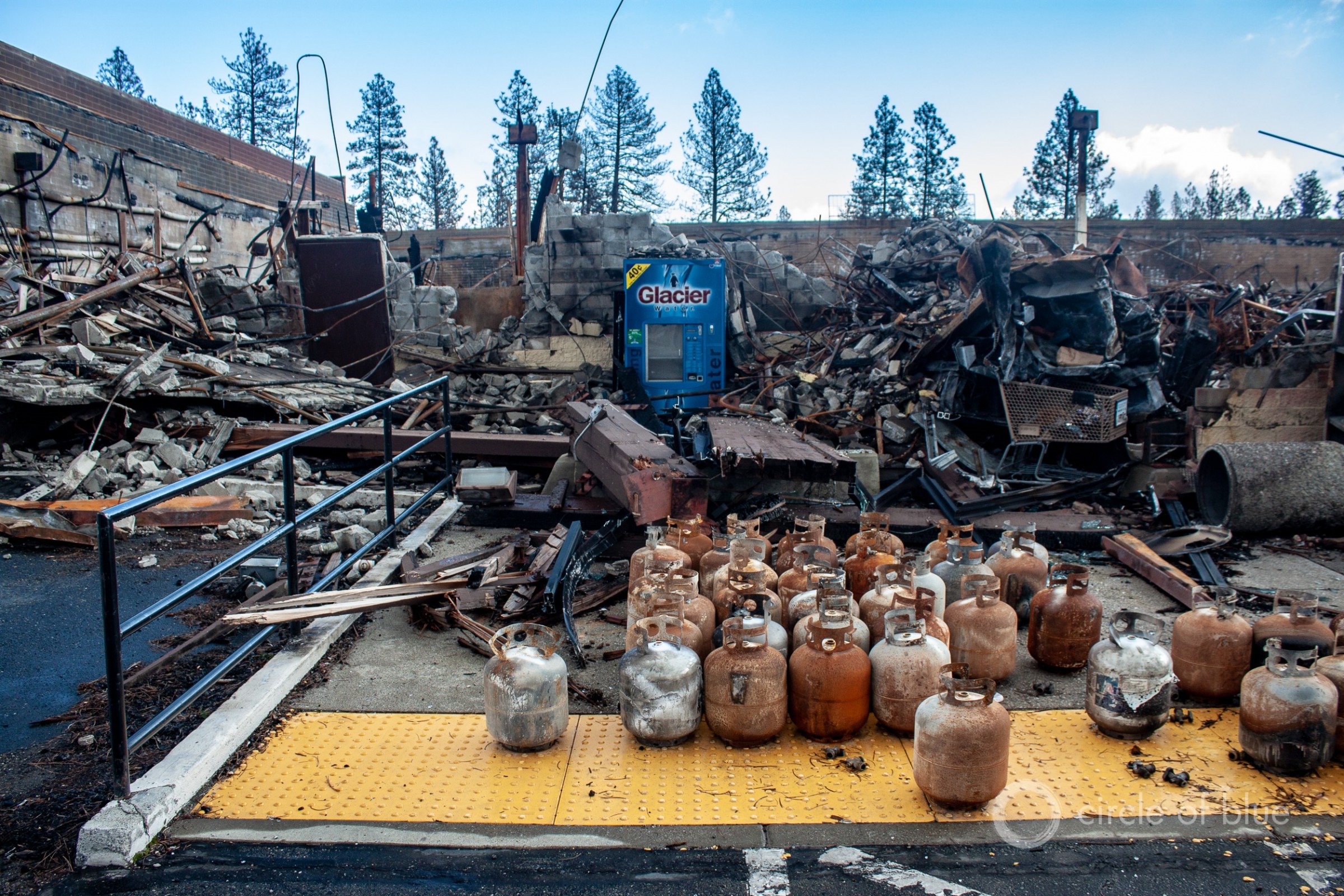
A Safeway grocery store in Paradise’s Old Town Plaza was reduced to rubble. Photo © Brett Walton/Circle of Blue
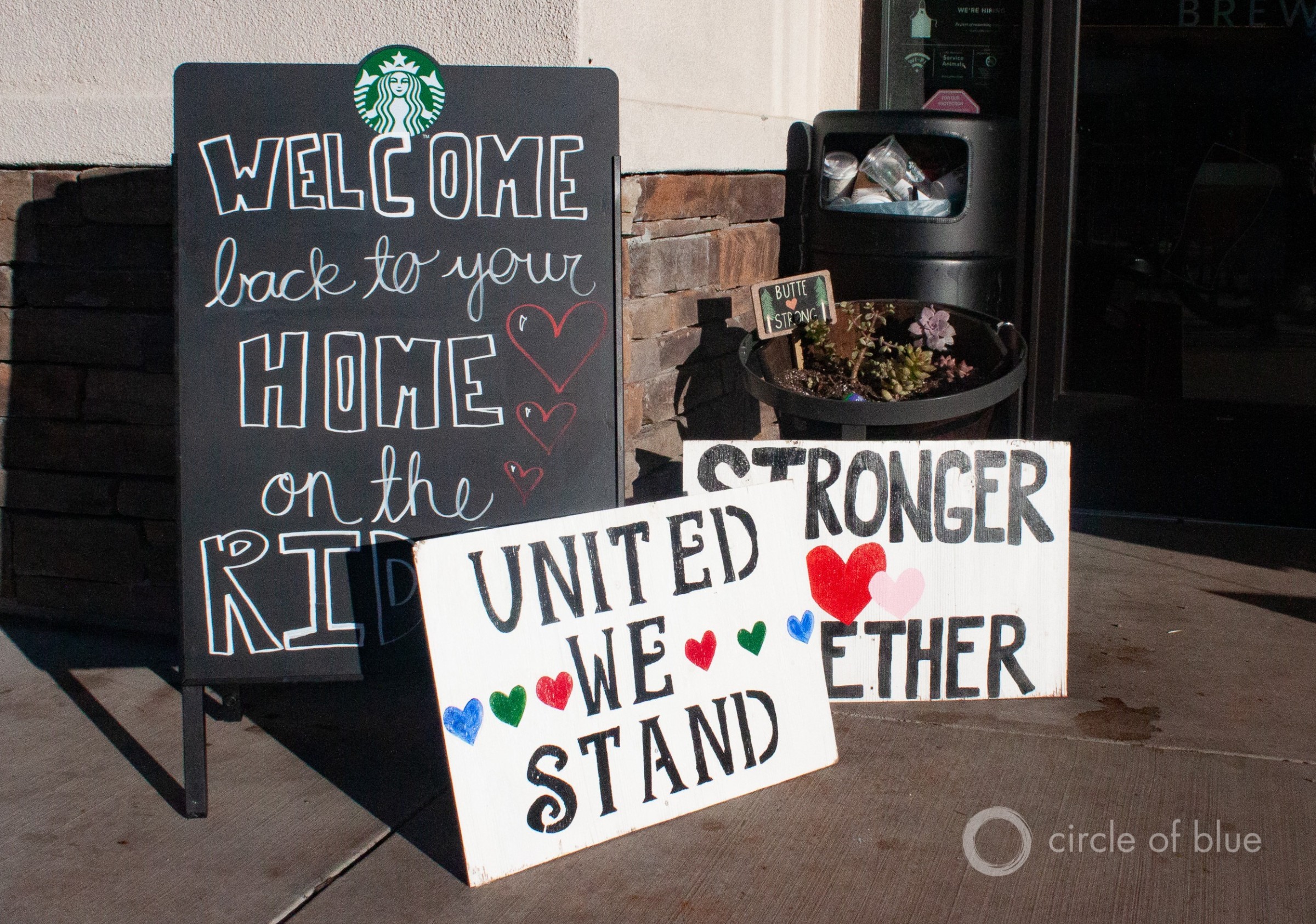
Signs of support decorate the entrance to the Paradise Starbucks, one of the few businesses to have reopened. Photo © Brett Walton/Circle of Blue
Brett writes about agriculture, energy, infrastructure, and the politics and economics of water in the United States. He also writes the Federal Water Tap, Circle of Blue’s weekly digest of U.S. government water news. He is the winner of two Society of Environmental Journalists reporting awards, one of the top honors in American environmental journalism: first place for explanatory reporting for a series on septic system pollution in the United States(2016) and third place for beat reporting in a small market (2014). He received the Sierra Club’s Distinguished Service Award in 2018. Brett lives in Seattle, where he hikes the mountains and bakes pies. Contact Brett Walton




